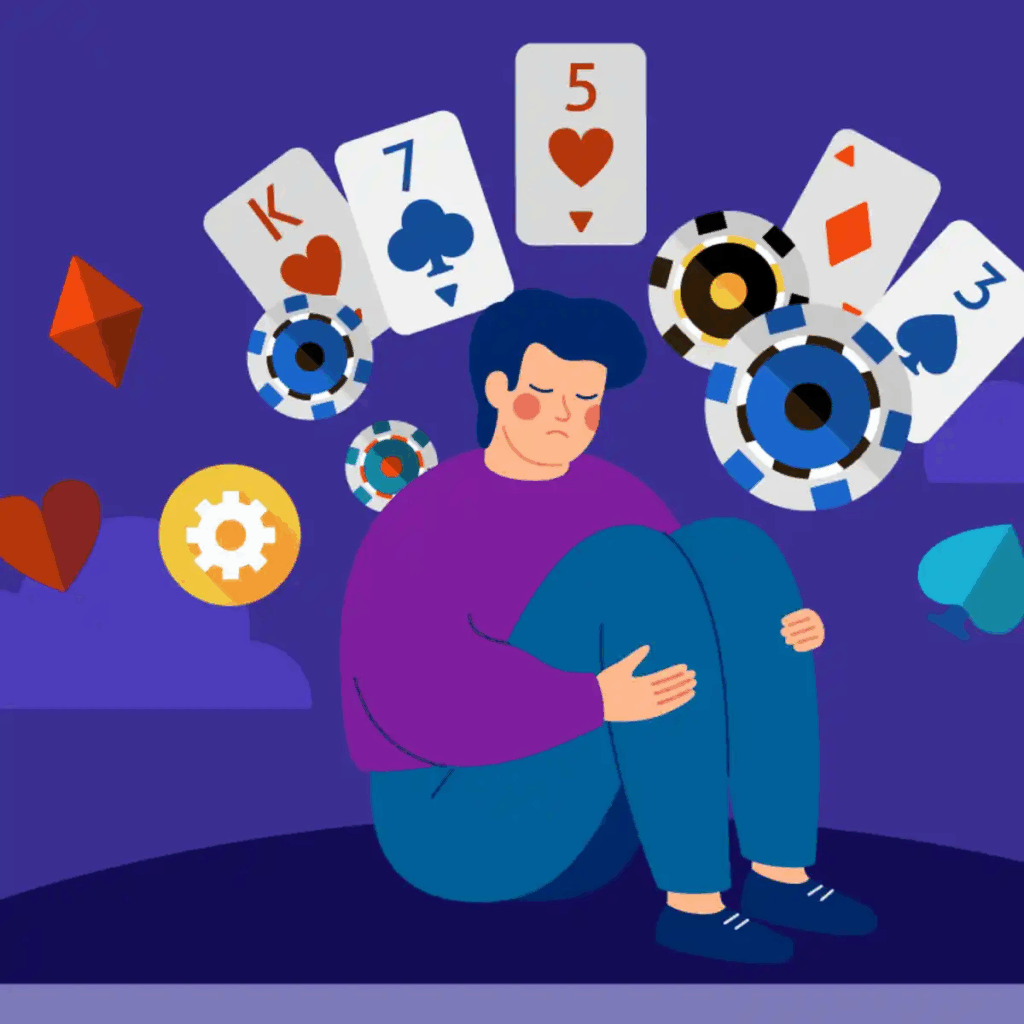Gambling is among the fun and exciting ways to unwind by placing sports bets or playing casino games. For most people, it remains an occasional pastime that doesn’t pose any risks. On the contrary, for some, this entertainment can turn into a habit that causes anxiety and stress. The obsession with betting is not a myth, and this problem is increasingly affecting more players globally. Realizing that you have gambling-related issues is the main step towards regaining control. The line between the healthy approach and compulsive habits isn’t always clear, so take a look at the primary symptoms that must alert you.
You’re Chasing Losses
Overspending is the most common cause of betting addiction; users are unable to stop depositing despite losses and constantly try to win back. If you find yourself wagering to recover from previous losses, you may experience the first signs of compulsive disorders. This mindset is dangerous, as users are confident that their unsuccessful streak is about to end, and they will definitely get real cash prizes.
However, all gambling-related activities are risky, with most games based on the Random Number Generator. No strategy guarantees a winning outcome, so players must be double-attentive to their bankrolls. If you realize that you increase your bet limits after a failure or play longer than you initially planned, these can be symptoms of chasing losses. Try to avoid this condition by setting budget restrictions and leaving the website on time.
You’re Gambling With Money You Cannot Afford to Lose
Industry experts highlight the risky nature of this pastime and encourage users to never gamble with the money that they need for their essentials. Players should remember that they can only invest cash they are theoretically ready to lose. Once a casino or betting lover starts spending funds intended for groceries, rent, and bills, they should consider that they might have a progressing gambling disorder. Knowing when to stop aiming to avoid significant expenses is critical for players, so set limitations and adhere to them under any circumstances. Taking loans to fund your online casino balance is unacceptable, and such behaviors indicate the growing probability of compulsive habits.
You Lie or Hide Your Gambling Preferences
As a rule, people targeted by compulsive problems face challenges in admitting they suffer and need third-party assistance. In this case, many users hide their obsession with gambling and lie to their close people.
 Many users find themselves hiding bank statements (or casino receipts) and deleting browser history so that their families do not detect their habits. This condition requires immediate intervention: shame and guilt are the two emotions driving people with problematic habits. If you notice these symptoms when betting on sports or playing casino games, quit the platform and seek assistance.
Many users find themselves hiding bank statements (or casino receipts) and deleting browser history so that their families do not detect their habits. This condition requires immediate intervention: shame and guilt are the two emotions driving people with problematic habits. If you notice these symptoms when betting on sports or playing casino games, quit the platform and seek assistance.
Gambling Affects Your Mood and Mental Health
Bookmakers and casinos are primarily entertainment, and approaching them as a source of income is the wrong choice. Healthy gambling habits make this pastime enjoyable; users feel good when engaging in 1xBet online betting and placing wagers on the most exciting matches. If you experience anxiety and stress when entering online sportsbooks, you may need some time to reflect and reconsider your habits. If a player’s emotions constantly depend on their successes and failures in casino gaming and betting, they need to set this activity aside and work on developing a healthy approach.
You’re Spending More Time Than You Initially Planned
Time limitations are no less important than deposit restrictions, so users must remember to take breaks and never devote all day long to gambling. Casinos and betting have become more accessible than ever before due to the global rise of digital services. In 2025, punters have lots of entertainment options at their fingertips, which creates a boost in compulsive gambling rates globally. Users should take a break from playing if they experience the following:
- Miss essential things like meals or work appointments when they gamble
- Stay up at night despite feeling tired and exhausted
- Discover that hours pass without users realizing it in real time
- Skip personal responsibilities that can spoil family relationships
Sometimes, users tell themselves “just one more game” and stay in front of the screen for hours. This behavior can result in gambling disorders and lead to severe mental health problems. Limiting time in online casinos and sportsbooks isn’t complicated, especially considering the rapid technological advancement. Players can set on-site restrictions, and the system will alert them when the time to take a break comes. Gambling habits must never dominate your schedule, so use all the available tools and stay in control to maximize benefits.
You’re Always Thinking About Betting
Obsession with gambling activities is one of the main signs that a player needs support in coping with their uncontrolled cravings. If you think about the spinning reels or changes in bookmaker odds when not betting, it’s a warning symptom. Mental preoccupation can shift a person’s focus from important activities and make them less concentrated at work. Online casinos are a good way to unwind and have fun, but users shouldn’t forget about the enjoyment of other hobbies.
